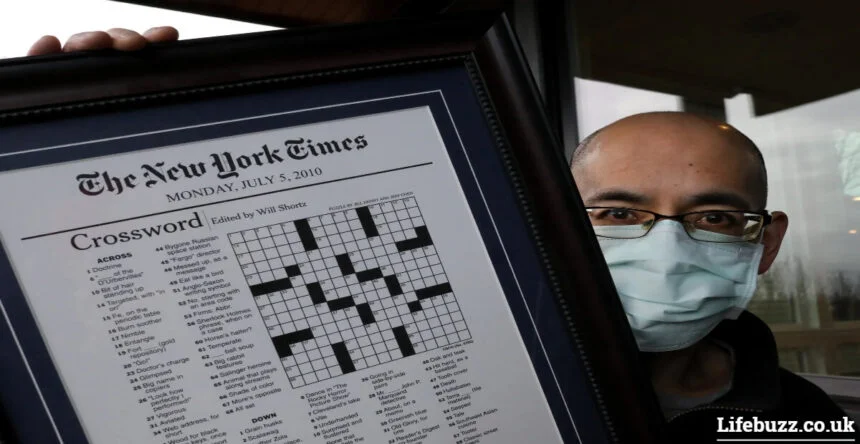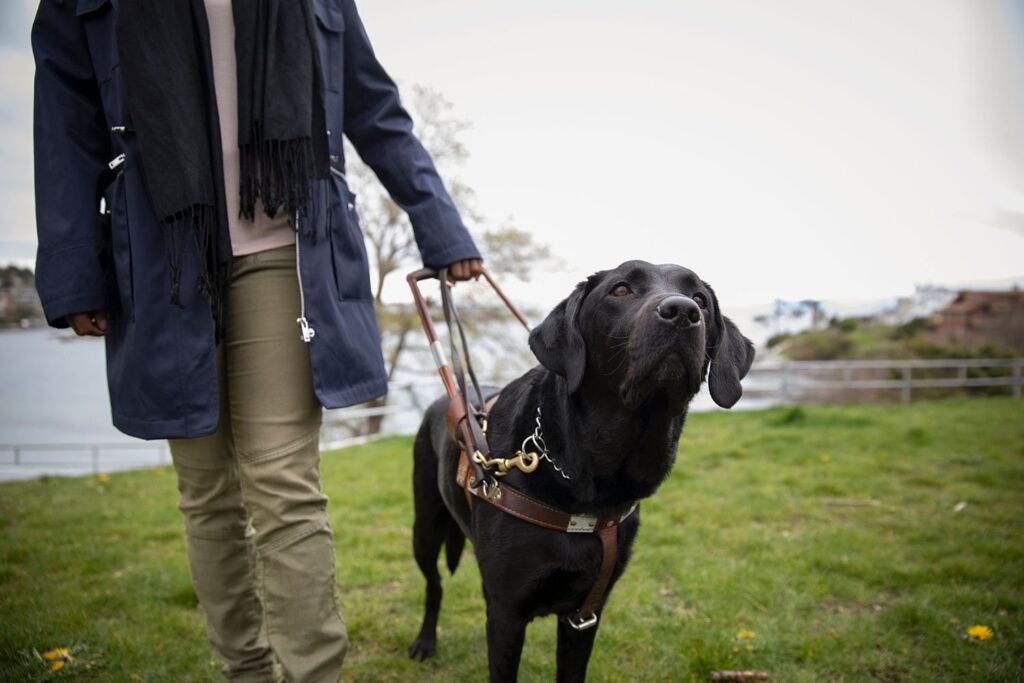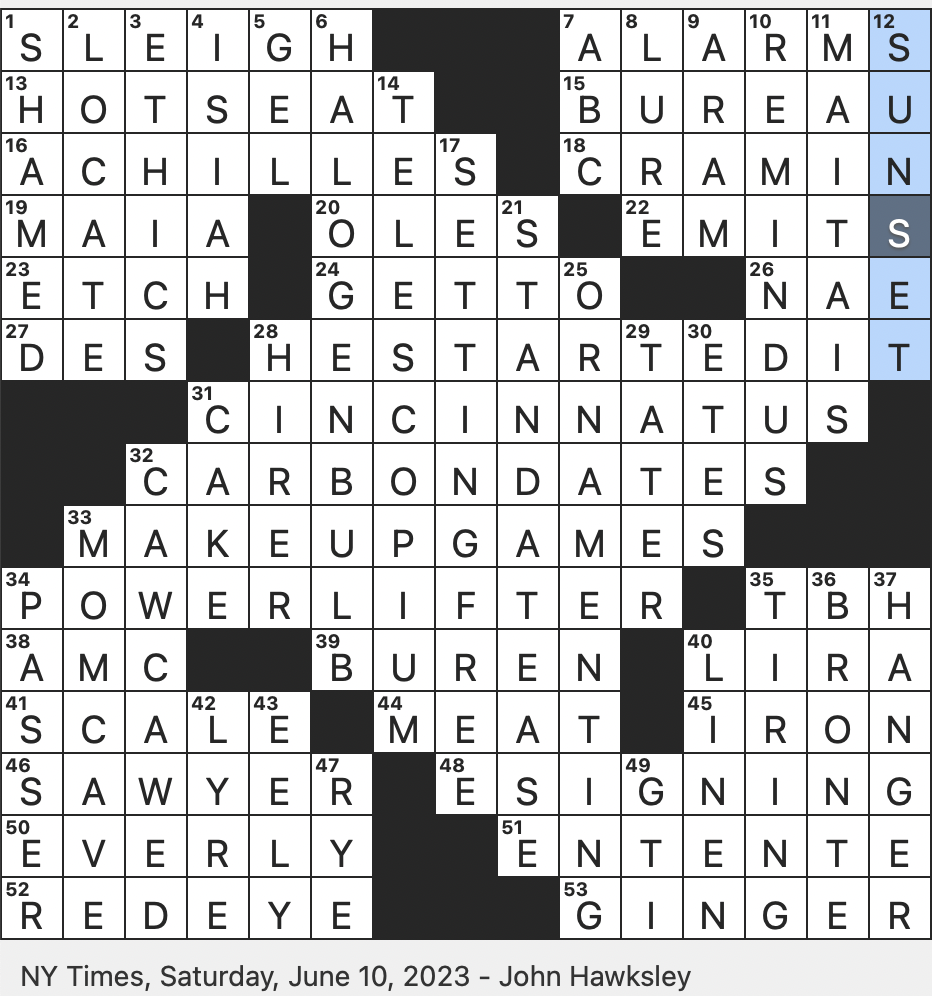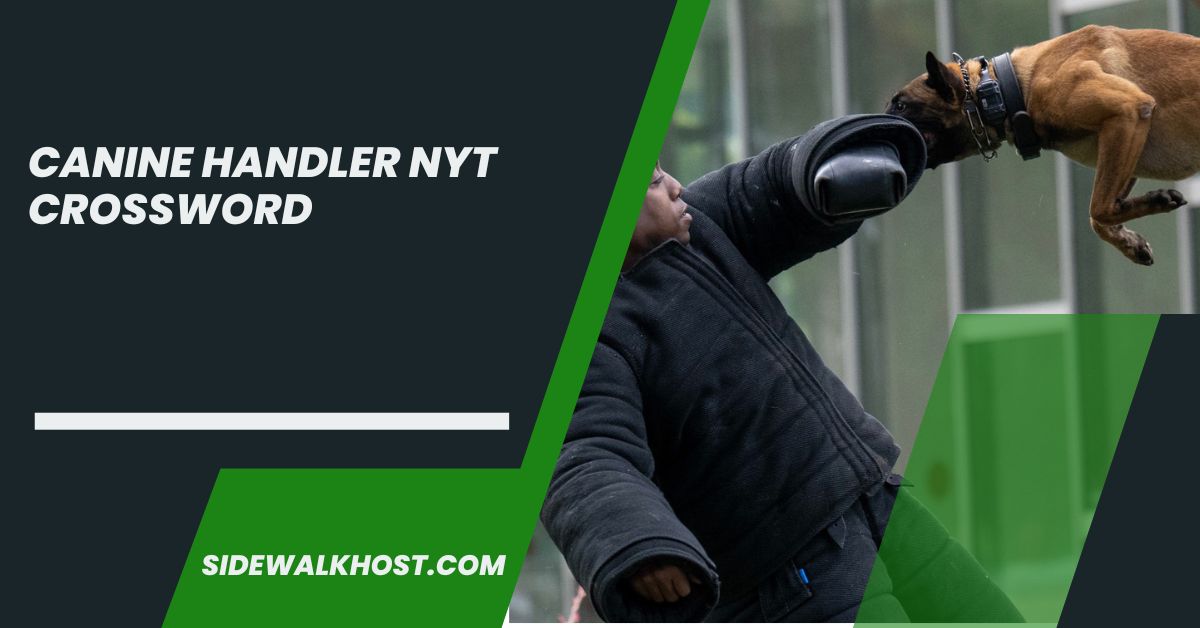While volunteering at an animal shelter, I often saw the term “canine handler NYT crossword”. It reminded me of training dogs, building bonds, and witnessing transformations. Solving that clue brought back memories of the impact handlers have on our furry friends’ lives.
The “canine handler NYT crossword clue sparks cherished memories for dog lovers. As a former animal shelter volunteer, I experienced the joy of training dogs and building bonds. This article explores the significance of handlers and their impact on dogs.
In this article, we’ll explore the significance of this clue, the essential roles that canine handlers play in our lives, and the skills they have. Join us as we celebrate the bond between dogs and their handlers, and uncover the fascinating details behind this engaging crossword puzzle term!
What does the clue “canine handler” typically refer to in the NYT crossword?
In the NYT crossword, the clue “canine handler” usually means someone who works closely with dogs. This can include people who train dogs or take care of them. Common answers for this clue are words like “trainer,” which refers to someone who teaches dogs specific skills, and “owner,” which means someone who looks after their pet.
This clue shows how important it is to have people who care for and train dogs. It highlights the special connection between humans and their furry friends, reminding us of the roles that handlers play in helping dogs learn and grow. These roles can greatly impact a dog’s behavior and overall well-being.
How often does the term “canine handler” appear in NYT crossword puzzles?
The clue “canine handler NYT crossword” usually refers to a person who works with dogs, such as trainers or service dog handlers. This term highlights the bond between humans and dogs, showing how handlers help them learn and thrive.

It emphasizes the important roles handlers play in areas like therapy and law enforcement. When you see this clue, it brings to mind the skills involved in working with dogs. Handlers not only train dogs but also build strong relationships with them.
This clue can remind solvers of their own experiences with dogs, whether training pets or learning about care. Overall, “canine handler” connects many dog lovers to the special roles humans play in a dog’s life.
What skills are essential for a successful canine handler?
- Strong Communication Skills: Ability to give clear commands and signals to dogs.
- Patience: Essential for training, as it takes time and effort to teach dogs.
- Understanding of Canine Behavior: Knowledge of dog body language to respond appropriately to their needs.
- Problem-Solving Skills: Ability to handle challenges that arise during training.
- Physical Fitness: Important for keeping up with active dogs, especially in demanding roles.
- Genuine Love for Dogs: A strong commitment to the well-being of dogs is vital.
Read More: The Ultimate Guide to the Cardpop L 82V8 eMMC B Manual PDF
Why is the role of a canine handler significant in real life?
Canine handlers are important because they train dogs to help people in various ways. For example, service dogs assist individuals with disabilities, making daily tasks easier. In police work, handlers use dogs to find drugs, explosives, or missing people, helping keep communities safe.
They train search and rescue dogs to locate lost individuals during emergencies, showing how valuable their work is. Handlers provide comfort through therapy dogs that visit hospitals and schools, cheering up those who are sad or unwell.
By creating strong bonds between humans and dogs, handlers help everyone appreciate animals more. Their work also teaches responsible dog ownership, leading to safer neighborhoods and more love for our furry friends.
What types of jobs do canine handlers typically hold?

- Service Dog Trainer: They train dogs to assist individuals with disabilities, helping them with daily tasks.
- Law Enforcement Handler: These handlers work with police dogs to find drugs, explosives, or missing persons and assist in criminal investigations.
- Search and Rescue Handler: They train dogs to locate lost individuals in emergencies, such as natural disasters or missing person cases.
- Therapy Dog Handler: These handlers work with therapy dogs in hospitals, schools, and nursing homes, providing comfort and emotional support to people.
- K9 Unit Officer: In law enforcement, they may be K9 officers who handle police dogs during patrols or investigations.
- Dog Training Instructor: Handlers may teach dog training classes, helping pet owners learn how to train their dogs effectively.
How does the “canine handler” clue reflect current trends in dog training?
The “canine handler” clue in crosswords highlights the increasing importance of dogs as helpers. One trend is the growing demand for service dogs, which assist individuals with disabilities, reflecting a shift toward inclusivity and the need for specialized training.
This trend shows how society values the role of dogs in enhancing people’s lives. Another trend is the rise of therapy dog programs, where handlers and dogs provide comfort in hospitals and schools.
This acceptance of dogs in therapeutic roles shows a better understanding of the benefits of human-animal bonds. Overall, the clue signifies the evolving roles of dogs and handlers in society.
Read More: Serial number: 08081589994 – Know About Serial Number
How can crossword enthusiasts prepare for clues related to canine handlers?
Crossword enthusiasts can prepare for clues related to canine handlers by familiarizing themselves with dog training terminology. Understanding terms like “service dog,” “therapy dog,” and “K9 unit” can help solve puzzles more easily.

Reading books or articles about dog training and the roles of handlers will also provide valuable context. Additionally, joining online crossword communities can expose enthusiasts to different clue styles and help them learn from others.
Regularly solving puzzles and focusing on “canine handler” NYT crossword clues can strengthen their knowledge. By staying informed and practicing consistently, crossword fans can enhance their skills in tackling canine handler clues.
FAQs:
1. What skills are needed to be a successful canine handler?
Successful canine handlers need strong communication skills, patience, and a good understanding of dog behavior and training techniques.
2. How often does “canine handler” appear in crossword puzzles?
The “canine handler” clue appears occasionally in crossword puzzles, especially in those focused on animals or service roles.
3. What is the significance of canine handlers in society?
Canine handlers play a vital role in training dogs to assist people with disabilities, provide therapy, and support law enforcement efforts.
4. Can I become a canine handler without formal training?
While formal training is beneficial, gaining experience through volunteering or working with dogs can also lead to becoming a skilled handler.
5. What are some common challenges faced by canine handlers?
Canine handlers may face challenges such as managing dog behavior, building trust with dogs, and handling difficult training scenarios.
Conclusion:
The “canine handler” clue in the NYT crossword highlights the essential roles dogs fulfill in our lives. From assisting individuals with disabilities to offering comfort in various settings, handlers make significant contributions to society.
Exploring this topic helps enthusiasts appreciate the impact skilled canine handlers have on communities.
Ultimately, this understanding fosters recognition of the dedication and compassion these handlers show in their work with our furry companions.
Read More:










